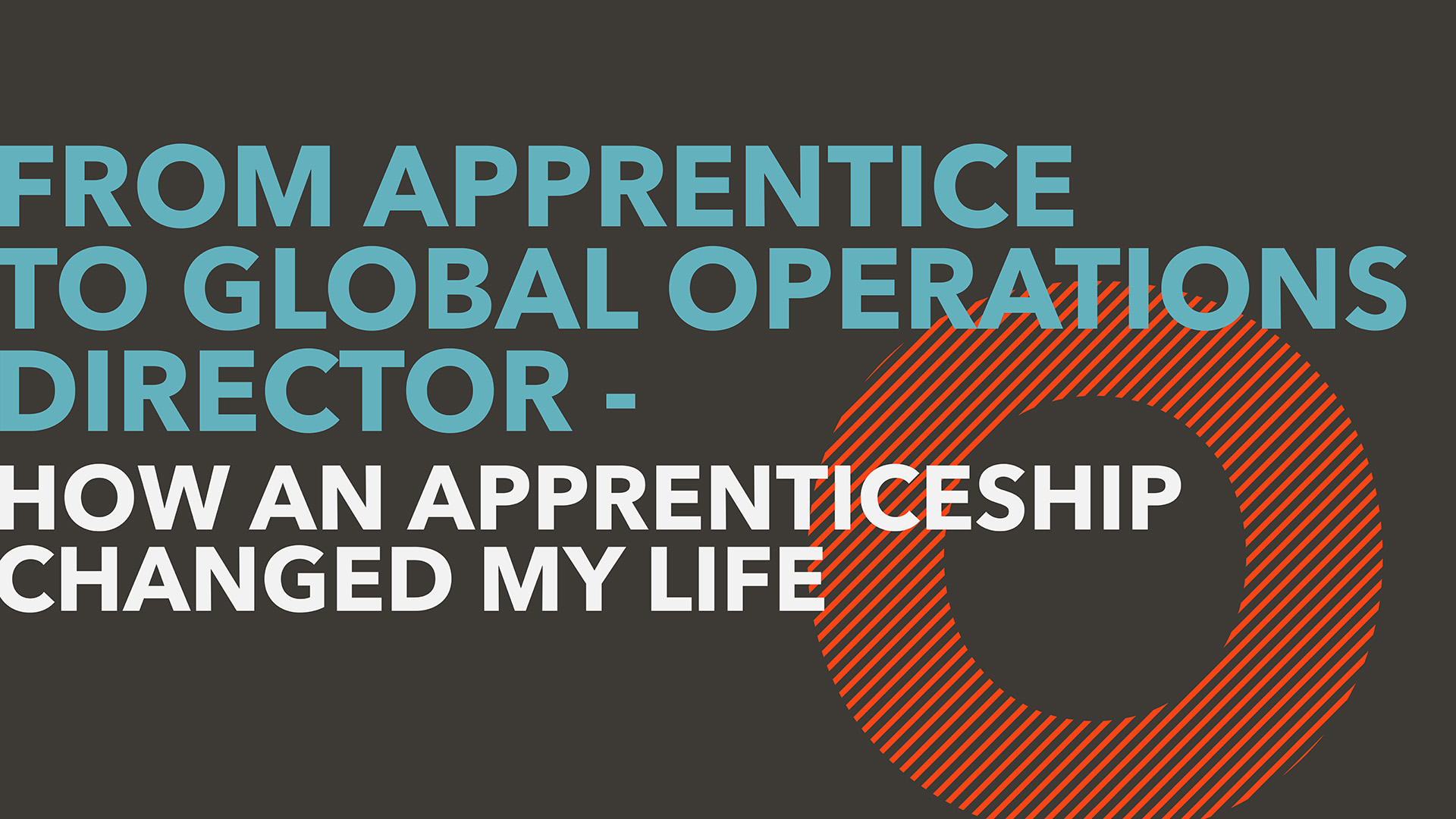From apprentice to global operations director — how an apprenticeship changed my life
By: Paul Hood

I took an apprenticeship when I was 16 years old and I didn’t realise it at the time but it was a decision that would shape the rest of my life.
That was more than 30 years ago. Apprenticeships were dying out back then. I applied for 50-odd positions and was granted three interviews, one of which was for a technician’s apprenticeship with the Post Office.
Born and raised in London’s East End, I definitely wasn’t the smartest kid who applied. But I was passionate, driven and hands-on. I was disciplined too, thanks to three years of martial arts training. So I went to my interview, did the best I could, and was lucky enough to get the job.
As part of my training I was required to attend technical college on block release. Academia had never been my thing. I like to live in the real world and get stuff done. Reading books and studying just for the sake of it doesn’t resonate with me at all. My brain isn’t wired that way. I switch off if I can’t see how knowledge can be applied in the real world. But college was different. I excelled at the theory because I understood why I was learning it and how it related to the practical stuff that I was doing in the workplace.
I stayed at the Post Office for a number of years, specialising in mechanisation control. I wrote software and programmed machines to be more effective in the high-speed sorting of letters and parcels.
When I left it was time for an adventure. I went travelling for a while with Raleigh International, a sustainable development charity which works to improve access to safe water and sanitation in remote, rural areas, and to protect vulnerable environments.
I flew out to the Torres Strait islands – a group of small islands off the far northern coast of Australia – where I built houses, did some work for the Scientific Laboratory of Australia, and other fun projects. Raleigh offered me a permanent position with them but I turned it down because I’d met a girl back in the UK before I left who I was quite keen to see again. It was a good decision. We’re still together now.
After a quick detour to go white water rafting down the Sunkoshi river and a climb to Everest base camp, I headed back to Britain, where I began my journey into the big bad corporate world. A mate of mine got me in as a service engineer at Johnson’s Controls, a multinational conglomerate that specialises in heating ventilation, air conditioning and control of intelligent buildings in major cities.
It was an exciting time at Johnson’s, things moved fast. I was thrown in at the deep end (everyone was) and had to quickly pick things up. Every day was a school day and it soon became clear where there were gaps in my knowledge.
The code I was writing at Johnson’s had a strong mechanical bias whereas my apprenticeship was weighted more towards the electrical side of things. So I went and got my MCIBSE qualification to strengthen my understanding of mechanical plant to improve my capability.
This ‘jump in and adjust as you go’ attitude has served me well throughout my career.
If you don’t know what to do, my advice is start heading in the direction you want to go and you’ll soon discover what you need to do in order to reach the next step.
From Johnson’s I moved to J. P. Morgan, where I took a position as their engineering manager. I was with them for 13 years, starting out in charge of their London portfolio, which expanded to include the whole of the UK, and for the final five years I was head of engineering for Europe, the Middle East and Africa. J. P. Morgan was a fantastic company. They taught me tons, gave me opportunities and made me into a good all-round engineering manager.
Following J. P. Morgan, I spent a number of years at Barclays’ global retail bank, taking care of their global portfolio, before deciding I’d had enough of the corporate life.
It’s tough being an engineer in a bank. You have a tremendous amount of responsibility to make sure governance is upheld, and to remain compliant with best practice. There was so much red tape that getting things done felt like wading through treacle. After 21 years I was done.
Most people in the corporate world see knowledge as power. They are reluctant to give away information because they feel it weakens their position. But as an engineer, being able to solve problems by learning from others is one of the most exciting aspects of the job. A refusal to share mistakes and what works only slows down our entire industry. Use your knowledge to empower, not as power.
Yondr is a complete contrast to the corporate world. It has a truly collaborative spirit, lives its values and embodies its ‘without constraints’ tagline. It acts with integrity and has humility at its core. As soon as I met the Yondr people I felt valued and I knew they’d allow me the freedom to make a real difference.
Someone at the Post Office saw something in me and gave me an opportunity. That opportunity has influenced the rest of my life. Throughout my career I’ve repeatedly given opportunities to others the same way they were given to me.
Whenever I’ve been responsible for a contract I’ve made sure we have apprentices on the team so they can gain experience and learn the skills needed to progress. And like the person at the Post Office, I don’t look for the smartest person. I look for passion and ownership. Being smart doesn’t mean you’re the best. You must possess the drive and desire to deliver a quality job. And that’s something you can’t train.
My time at Yondr has barely begun, but as I look to the future my passion for helping young apprentices – giving them opportunities and training them to become the engineers of tomorrow – is stronger than ever.



